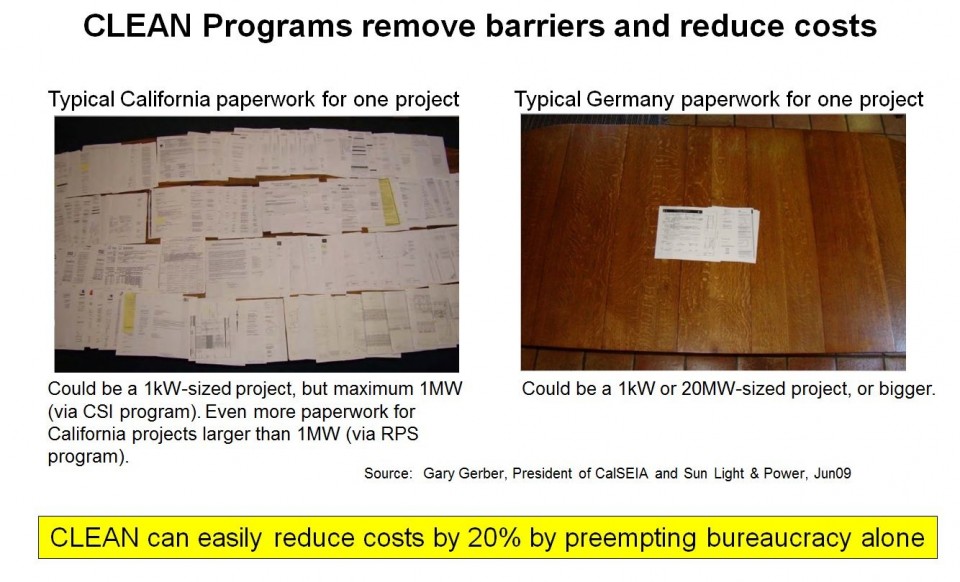
Driving toward solar market efficiency
Streamlining WDG in the United States, which has stronger renewable resources than Germany, is a crucial step toward the rapid and widespread adoption of clean local energy.
To accelerate the transition to clean local energy in the United States, the Clean Coalition utilizes best practices from the world’s most successful programs and policies. Germany’s solar market – the world’s largest by far – offers important lessons for streamlining solar project deployments.
Through the creation of a nationwide CLEAN Program, Germany has brought staggering amounts of solar energy online. Of all Germany’s solar capacity, which is large enough to meet half the country’s midday energy needs, more than 80 percent is on rooftops. Wholesale distributed generation (WDG), not large-scale generation, is powering their solar success. With little fuss, Germany unleashed clean local energy by creating fair, simple, and transparent procedures for individuals, small businesses, and organizations to build projects, connect to the grid, and sell the produced energy to the utilities.
Similarly, streamlining WDG in the United States, which boasts significantly stronger renewable resources than Germany, is a crucial step towards the rapid and widespread adoption of clean local energy. According to research from Lawrence Berkeley National Laboratory, a more efficient California solar market would bring rooftop solar online at a cost of seven to 10 cents/kWh, depending on project size.
To streamline the U.S. solar market, the Clean Coalition is urging the California Public Utilities Commission (CPUC) to adopt a strong “standard form contract” that investor-owned utilities (IOUs) must use when purchasing energy from WDG facilities. Predictably, the IOUs have proposed a Power Purchase Agreement (PPA) that is five times longer and more complex than a comparable PPA used by leading municipal utilities in California, such as Sacramento Municipal Utility District (SMUD) and Palo Alto Utilities. Unnecessary and complicated requirements in the IOUs’ proposed PPA would undoubtedly add significant costs and further hinder the development of an efficient market for clean local energy.
Alternatively, the Clean Coalition has proposed a model Power Purchase Agreement (PPA) that is fair, simple, and transparent. The model PPA will reduce the costs and timelines associated with bringing WDG online, while also saving consumers money by eliminating unnecessary transaction costs and unleashing competition in the energy marketplace. Download the Clean Coalition’s model PPAhere.


